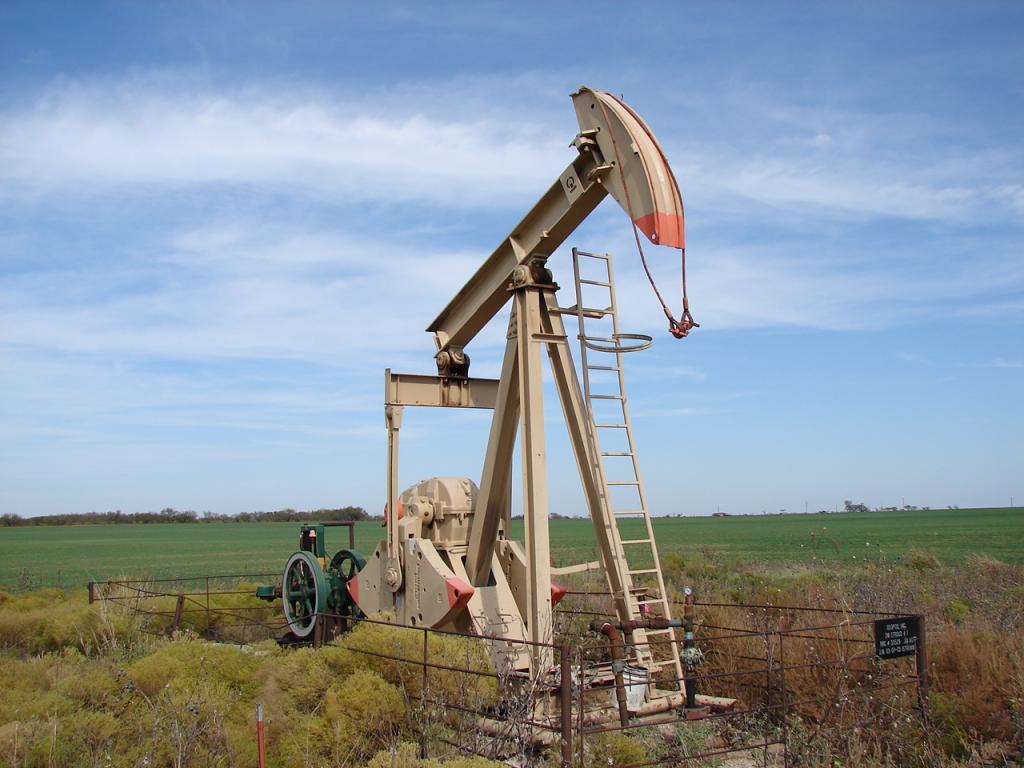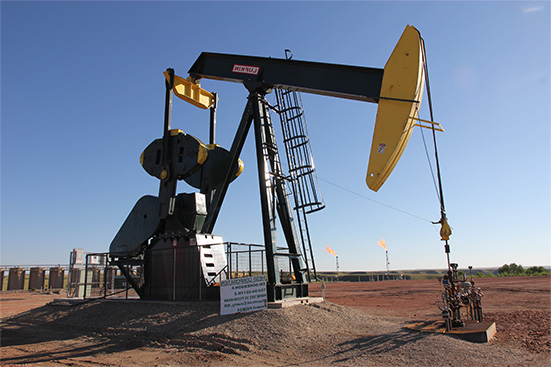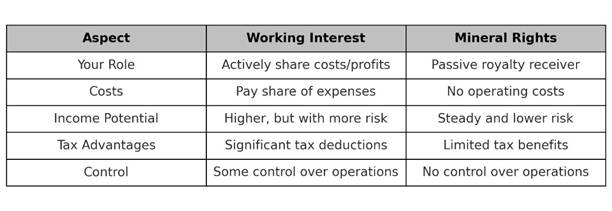
Oil and gas investments can offer strong potential, but it’s important to understand the different ways you can invest. Two commonly confused terms are working interests and mineral rights, each with its own structure, benefits, and risks. Knowing the difference can help you choose the approach that best fits your financial goals, whether you’re looking for steady passive income or aiming for higher potential returns. Informed investors take the time to understand their options, and that knowledge can lead to smarter decisions.
Working Interests: Be Part of the Action
A working interest allows you to participate in oil or gas production. As an owner, you share in both the costs and the profits.
What to know:
- Shared costs and profits – You cover your share of expenses, such as drilling and maintenance, while earning a portion of the revenue.
- Tax benefits – Working interests offer tax advantages, including deductions for intangible drilling costs (IDCs) and depletion allowances.
- Non-operating option – At DW Energy Group, we focus on non-operating working interests. This means you can enjoy potential returns without managing daily operations.
This type of investment offers a higher level of involvement and the potential for greater rewards. However, it also carries risks, as you are responsible for a share of the costs.
Mineral Rights: Earn Without the Work
Mineral rights give you ownership of the minerals beneath a property. Rather than handling the drilling yourself, you lease these rights to an operator and earn royalties from the oil or gas they produce.
Here’s what to know:
- Passive income – Once leased, mineral rights can provide steady royalty payments.
- No expenses – You are not responsible for any drilling or production costs.
- Long-term value – These rights can continue to generate income for years.
This is a more hands-off investment. You avoid the complexities of operations, but you also won’t have control over how production is managed.
Contact DW Energy
Want to learn more about oil & gas investing? Our expert team can provide you with more information or schedule a consultation to talk about diversifying your investment portfolio.

How They Compare
When deciding between working interests and mineral rights, it helps to understand the key differences. This side-by-side comparison highlights how each option functions from an investor’s perspective. With a working interest, you’re actively involved – you share both in the costs and the profits, have some say in operations, and gain access to significant tax deductions. However, that involvement comes with higher risk.
On the other hand, mineral rights offer a more passive experience. You don’t pay operating costs, and you don’t have control over production, but you do receive steady royalties. This option typically carries less risk, though the income potential and tax benefits are more limited. Choosing the right path depends on your financial goals, risk tolerance, and desired level of involvement.

Both offer opportunities – it’s just a matter of what fits your goals.
Which One is Right for You?
Your choice depends on what you want from your investment.
- Working Interests – Ideal for those seeking higher potential returns and willing to be more involved in the project.
- Mineral Rights – A better option for investors looking for passive income with minimal involvement.
At DW Energy Group, we help qualified investors access working interests without the burden of daily operations. This way, you can focus on the potential rewards while we handle the details.
Making Sense of Your Investment Options
Understanding the difference between working interests and mineral rights can help you choose the path that best aligns with your goals and risk tolerance. Both offer unique advantages depending on what you are looking to achieve through oil and gas investments.
At DW Energy Group, we simplify the process and help qualified investors explore opportunities that match their strategy. Visit our website to learn how our approach can make investing clearer, smarter, and more rewarding. Let’s find the right fit for you.
Contact dw energy
Sources:
“Working Interest: Meaning, Overview, Advantages and Disadvantages,” Investopedia, https://www.investopedia.com/terms/w/working-interests.asp
“Mineral Rights: What it is, How it Works, Special Considerations,” Investopedia, https://www.investopedia.com/terms/m/mineral-rights.asp
